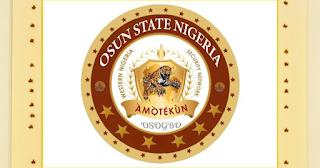EXPLAINER: Genetically Modified Organisms in Nigeria: What You Should Know


Claim: An X handle user @The Benin Blogger posted a video of a lady claiming that Genetically Modified Organisms were accepted in Nigeria a long time ago.
On the 5th August, 2025 an X handle user @The Benin Blogger posted a video of a lady in part of the video claiming that Genetically Modified Organisms was accepted in Nigeria a long time ago.
Genetically Modified Organisms have been the national discussion among most Nigerians due to the fact that a popular content creator on health-related doctor, Chinonso Egemba @aproko_doctor posted a video of himself with Bill Gates, one of the promoters of GMO technology in the world.
This happened when Bill Gates, co-founder of Microsoft and chairman of the Bill Gates Foundation, came to Nigeria to visit the President of Nigeria, President Bola Ahmed Tinubu, who was conferred a national honour of the Commander of the Order of the Federal Republic (CFR).
Bill Gates, according to Devex, through his foundation, the Bill & Melinda Gates Foundation, is one of the most prominent donors in this debate. For more than a decade, it has been providing funding for innovative agricultural research, including hundreds of millions of dollars for GMO projects, and there has been criticism of the GMOs.
Hence, due to the national interest of this trending issue of Genetically Modified Organisms (GMOs) GovernmendCheck explains through its findings on the veracity of the truth.
What is Genetically Modified Organisms (GMOs)
According to the World Health Organisation, “ Genetically modified organisms (GMOs) can be defined as organisms (i.e. plants, animals or microorganisms) in which the genetic material (DNA) has been altered in a way that does not occur naturally by mating and/or natural recombination. The technology is often called “modern biotechnology” or “gene technology”, sometimes also “recombinant DNA technology” or “genetic engineering”. It allows selected individual genes to be transferred from one organism to another, also between nonrelated species. Foods produced from or using GM organisms are often referred to as GM foods.
Act of parliament on Genetically Modified Organisms (GMOs) use in Nigeria
Our finding revealed that GMO has been in existence since 2007 when the Sixth Assembly of the Nigeria Federal House of Representative passed it into law July 2009, which was also sent to the House of Senate but it wasn’t worked on not until June 2011 according to SciDe Net quoted “ Nigeria’s national biosafety bill has been passed by the country’s upper house, agreeing that the bill should be harmonised with the version passed by the lower chamber in 2009.
Furthermore, corroborating the above information, Vanguard published on the 26th April,2015 President Goodluck Jonathan signed the National Biosafety Agency Bill into law after he failed to do so when it was first sent to him for his assent during the life of the 6th National Assembly.
Criticism of the GMOs Bill signed to Law
Despite the enactment of the bill into law, there has been criticism of the Genetically Modified Organisms (GMOs) in 2020 by some lawyers during a roundtable discussion on biosafety laws organised by the Health of Mother Earth Foundation (HOMEF), an anti-GMO advocacy group calling for GMOs should be continuously challenged through litigations.
The agitation against the passing of Genetically Modified Organisms (GMOs) by SOME civil society organisations (CSOs) make the Nigerian Senate for considering a bill that seeks to review the National Biosafety Management Agency (NBMA) Act in a bid to ensure food safety in the country and this was done by Nigeria House of Representative got applauded by civil society organisations, CSOs to investigate the introduction of GMOs in Nigeria.
Also, a finding published by PremiumTime House of Representatives has urged the federal government to suspend the commercialisation of Genetically Modified (GMO) crops in Nigeria amid concerns over food and environmental safety this was moved at the plenary by Muktar Shagaya (APC-Kwara) and adoption of a motion on the need to investigate the introduction of GMO crops in Nigeria, which the House mandated that its Committee on Agricultural Production and Services conduct a comprehensive investigation into GMO introduction in Nigeria by the National Biosafety Management Agency (NBMA).
Hence, there has been divided opinion over the use of Genetically Modified Organisms (GMO) foods in Nigeria. While some say GMO foods are harmful to crops and human health, others note that they are healthy and enhance agricultural productivity and food security.
Celestine U. Aguoru, professor of plant science and technology, said that GMOs are safe for consumption, noting that they are genetically modified for the purpose of boosting food security and enhancing farmers’ profits.
The former president of the Nigerian Biosafety and Biotechnology Consortium (NBBC) highlighted that GMOs are viable solutions to meeting the world’s food demand and combating climate change.
“But just like other hybrids, continuous research and development on GMOs should be encouraged,” he said.
Fred Ukula, agro-production/processing Manager at Ecobasic Seed Nigeria Limited, noted that investment in GMOs-related research and technologies is the way forward for addressing food insecurity in Nigeria.
Global Acceptance of Genetically Modified Organic (GMO)
According to research, several countries around the world have banned the use of GMOs.
In the European Union, the following countries have banned GMOS: France, Germany, Austria, Greece, Hungary, the Netherlands, Latvia, Lithuania, Luxembourg, Bulgaria, Poland, Denmark, Malta, Slovenia, Italy, and Croatia. In Africa, Algeria and Madagascar have banned GMOs, and in Asia, Turkey, Kyrgyzstan, Bhutan, and Saudi Arabia. Finally, in the Americas, Belize, Ecuador, Peru, and Venezuela have all banned GMOs. The United States has no official legislation banning GMOs. Russia is the most populous country to ban both the cultivation and importation of GMO crops, while in Africa 43 countries in Africa have banned (partially) the growth of GMOs
Finally, with the research conducted, it is safe to say that Nigeria has been using GMOs for a long time, and the claim is TRUE. Also, there has been neglect of Genetically Modified Organism (GMOs) among most countries of the world, with them banning seeds, and there has been unanimous acceptance of it.







